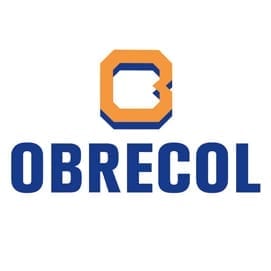
Case Studies

Case Studies
Company: Obrecol
Sector: Civil Construction
Country: Portugal
Manually completing and submitting supplier evaluation, material request and scheduling of holidays forms for approval, involving time and paper circulation costs.
Infosistema proposed an integrated solution based on the iFlowBPM Infosistema platform, modifying internal procedures:
Miguel Cabral, IT Manager – Obrecol
OBRECOL is a Civil Construction and public works company having participated in public works in the various fields of construction as well as numerous important works in the railway sub-sector. It has been present for several years in Angola and has already carried out several works of reference. Obrecol presents itself as a forward-looking company with a decentralized organization, totally focused on customer satisfaction, in compliance with the Environment and Security.
Obrecol used a system based on paper forms circulation (vendor evaluation, purchases of supplies, scheduling of holidays and supplier purchase orders).
These forms, in turn, were filled out by employees, requiring to be sent by mail for obtaining required approvals.
The cost and time required for processing forms was devastating and the productivity of the company was deeply affected.